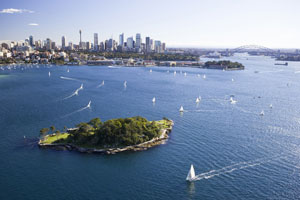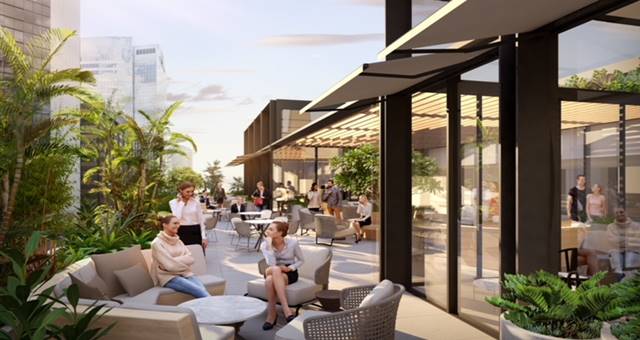By James Wilkinson
Discounted rates and falling occupancies are continuing to take a toll on the accommodation sector in Australia, with Sydney’s RevPAR (Revenue Per Available Room) plunging in both the luxury and upscale segments.
As hoteliers and suppliers converged on Darling Harbour for yesterday’s (Mar 19) No Vacancy conference, the hotel industry’s worst kept secret was revealed – Sydney’s RevPAR for February 2009 dropped by a staggering 22 per cent in the upscale segment compared to the corresponding period in 2008.
Hotels in the luxury space fared a touch better, but RevPAR was still down 12 per cent in the most turbulent times seen since the 1990 recession.

Rates and occupancies at Sydney hotels tumbled in February
“These are the most unusual economic times I have ever seen,” Rendezvous Hotels and Resorts CEO, Alan Featherby, told more than 200 delegates in attendance at the conference.
“I think we are in for a period of time where it is going to be unstable (and) to say Sydney is a basket case – well, that’s what I’m thinking right now.
“Sydney is entering a discounting psyche, which is worrying… but if you don’t participate, you’ll lose market share,” he said.
While the announcement of the STR Global statistics by Horwath HTL managing director Vasso Zographou was concerning, there was still some positive energy in the air.
“I suspect we are in for a bleak winter, but I’m looking forward to a positive fourth quarter of 2009,” Featherby said. “The first three quarters will be difficult, but we will see the sunlight in the final quarter.”
The STR Global statistics – particularly those highlighting January 2009 compared with the corresponding year – looked at the trading performance in each of Australia’s key cities.
Sydney and Brisbane fared the worst. Adelaide and Perth showed promising signs, with the latter still riding high on the back of the mining boom and a lack of new supply in the city.
Melbourne performed well in January, thanks to some major events, including the Australian Open tennis tournament. However, with thousands of rooms in the development pipeline, the statistics come mid-year could be cause for concern for the city.
“Melbourne will be a difficult market from a supply perspective,” Zographou said.
His comments were echoed by Featherby: “I’m not feeling confident over the next 12 months because of the 3000 plus rooms coming online.”
Key projects currently under development in the Victorian capital include the Hilton Melbourne South Wharf (due to open in April) and Crown’s Third Hotel, which is on schedule for a May 2010 completion, while InterContinental Melbourne The Rialto opened its doors in December 2008.
With the Sydney market down, all eyes will be on the performance of Melbourne this year – a market that has been traditionally one of Australia’s most resilient.
As Featherby said, these are unusual times, but the hotel industry is in a much better position than it was before the 1990-91 recession.
“What we are seeing today is nothing like what we saw in the early 1990s,” said Quest Serviced Apartments chairman Paul Constantinou.
Hotels in the early 1990s were challenged by a number of factors, including unemployment (almost double the current rate) and the oversupply of new rooms, which grew by 45 per cent between 1988 and 1993.
Comparatively, supply in new rooms for the 2008-2012 period is expected to be 20 per cent. However, Dransfield Hotels managing director Dean Dransfield said he expects that number to be closer to 10 per cent.
“These are the times we need to re-invest in our properties, our brand and our people,” Constantinou said.
“If you re-invest in your brand, your guests will come back and this is the time to re-build those relationships.
“At times like these, you have to see your customers and take them out to lunch, because if you don’t, then someone else will be eating your lunch,” he said.
No Vacancy – the leading online accommodation industry conference in Australia – opened by a Q&A session with Wotif Group CEO Robbie Cooke, who was positive about his company’s outlook for 2009.
He said room rates across the group rose by 1.1 per cent (wotif.com was up 1.6 per cent) in the second half of 2008 and while wotif.com is not expecting significant rises as seen over the last five years, it is highly unlikely room rates will dive into negative growth territory for the full financial year.
“I don’t think you are going to see our rates plunge,” Cooke said. “We will probably come out at the end of the year slightly positive or maybe flat, but I don’t think we will go backwards.
Wotif.com currently holds around 41 per cent of the online accommodation booking market in Australia and has prominent websites lastminute.com.au and travel.com.au in its stable.
Cooke has also downplayed suggestions that wotif.com could start heavily discounting, as some websites are doing – including those of major hotel chains.
“It is in our interest to make sure we can get the best rate outcomes for our hotel partners,” he said.
Maintaining rates and not heavily discounting will be a huge issue for the accommodation industry in 2009 as hotels struggle to fill rooms in the current economic climate.
“Rate integrity is a big issue and one that is not going to go away,” Featherby said. “Quite simply, rates discounting is a disaster for hotels.
“Rather than price discounting, let’s value-add – that’s a way we can move forward without destroying our industry through discounting,” he said.
Across Australia, the ADR (Average Daily Rate) is falling significantly in some cities, including Cairns where in January 2009 it was down 8.2 per cent to $123.44 from the corresponding period in 2008.
The fall pushed RevPAR down 7.1 per cent, but what’s more alarming is that both the ADR and RevPAR were expected to drop even further for February as a decline in international visitors and storms battered the tropical region.
To comment on this story, click here.

